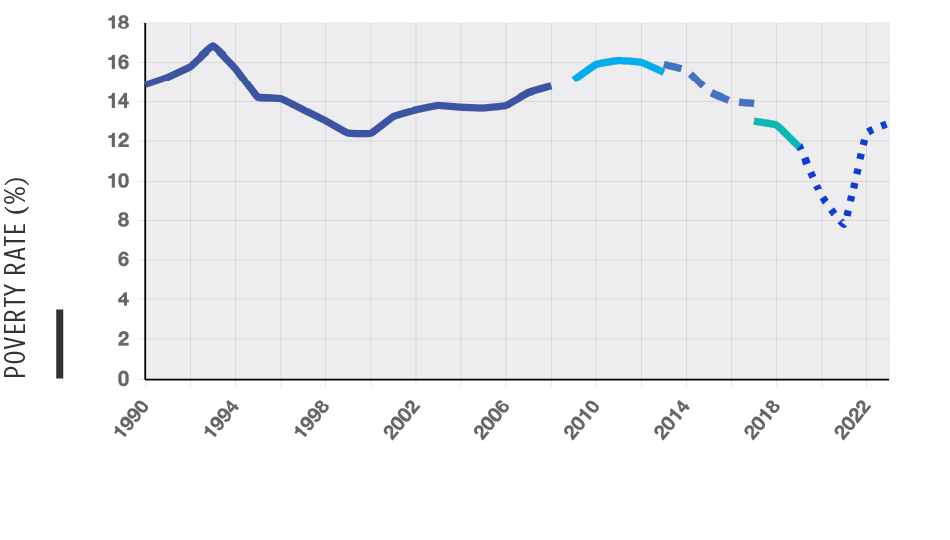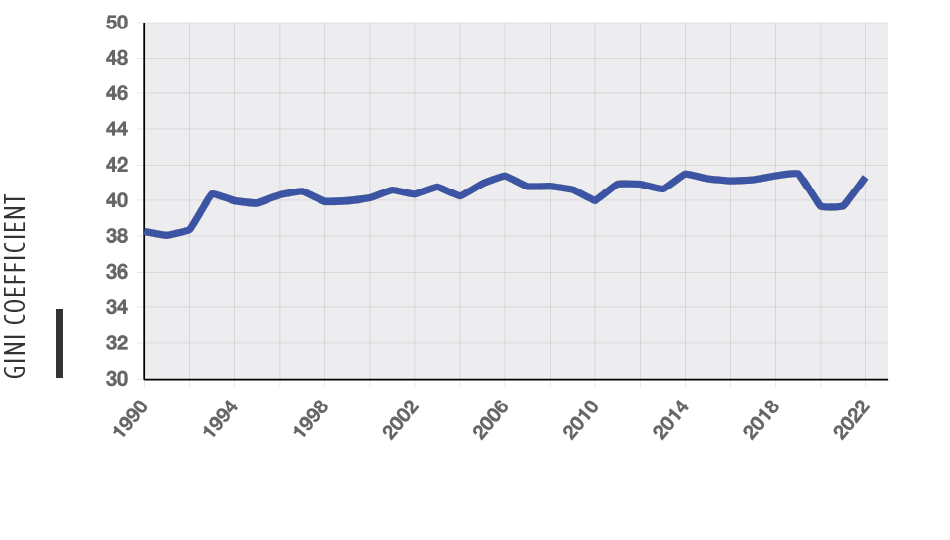Inequality
Inequality refers to the differences in income and wealth between all groups in society–between rich and poor and other people in between. High levels of inequality can signal real differences in social and economic opportunity and lead to perceived unfairness, distrust of government and other key institutions, and political unrest.
The importance of inequality relative to average economic well-being is sometimes debated. Some argue that a degree of inequality is a natural outgrowth of differences in individual abilities, motivations, and decisions. Others argue that the outcome is less important than the opportunity to get out of difficult economic circumstances, called economic mobility. Still, inequality is a concern across the political spectrum.
Summary of Results
More than three-quarters of higher-income countries have lower income inequality than the US. Our income inequality is also worsening overall and relative to other countries. This can be mainly attributed to quite large increases in income among the most well off. We can see this partly by comparing income inequality to our second measure: poverty. The poverty rate has been declining, mostly because of government programs that reduce taxation for low income people and provide them with government support. The result is that fewer people have incomes so low that they cannot provide for their basic needs. But the increase in income among the rich has been larger, which explains rising income inequality.

